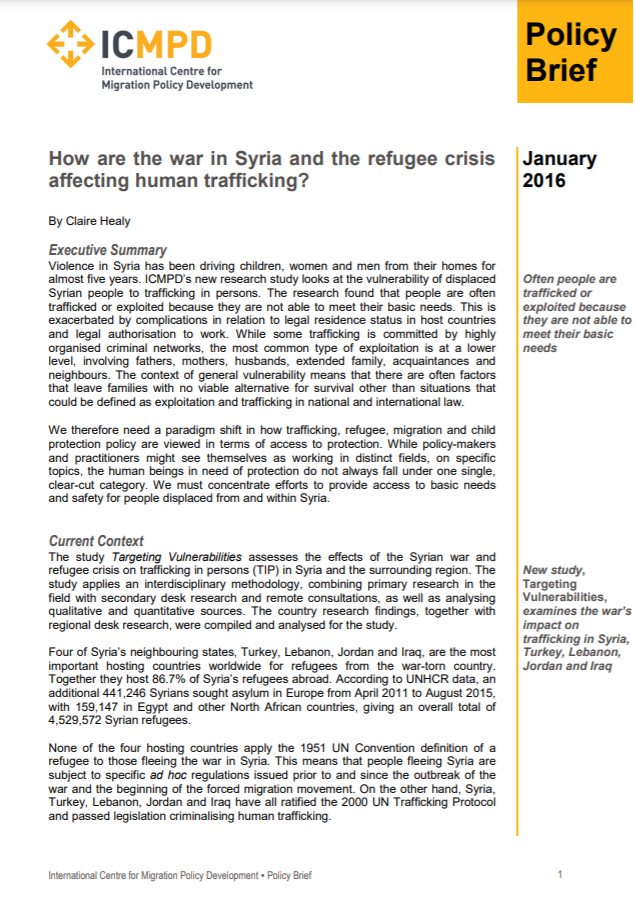
Violence in Syria has been driving children, women and men from their homes for almost five years. ICMPD’s new research study looks at the vulnerability of displaced Syrian people to trafficking in persons. The research found that people are often trafficked or exploited because they are not able to meet their basic needs. This is exacerbated by complications in relation to legal residence status in host countries and legal authorisation to work. While some trafficking is committed by highly organised criminal networks, the most common type of exploitation is at a lower level, involving fathers, mothers, husbands, extended family, acquaintances and neighbours. The context of general vulnerability means that there are often factors that leave families with no viable alternative for survival other than situations that could be defined as exploitation and trafficking in national and international law.
We therefore need a paradigm shift in how trafficking, refugee, migration and child protection policy are viewed in terms of access to protection. While policy-makers and practitioners might see themselves as working in distinct fields, on specific topics, the human beings in need of protection do not always fall under one single, clear-cut category. We must concentrate efforts to provide access to basic needs and safety for people displaced from and within Syria.
Country
Syrian Arab Republic
Region
Middle East
North Africa
Year
2016
Topics
Category